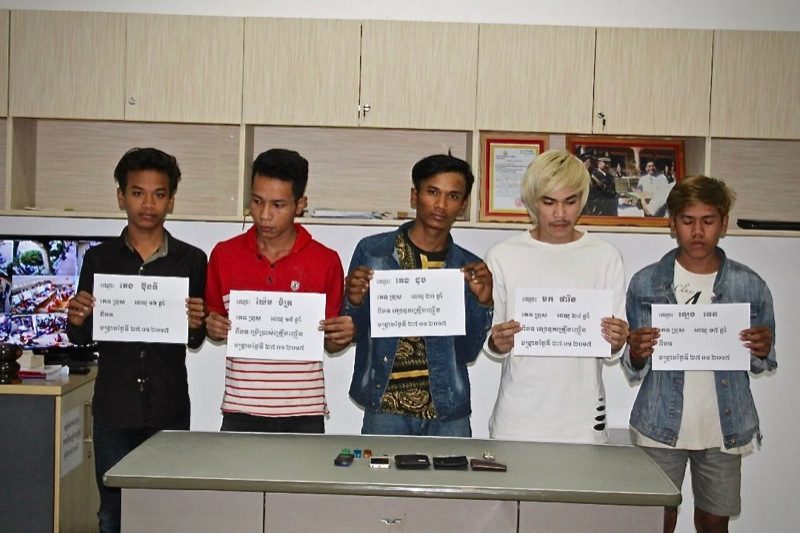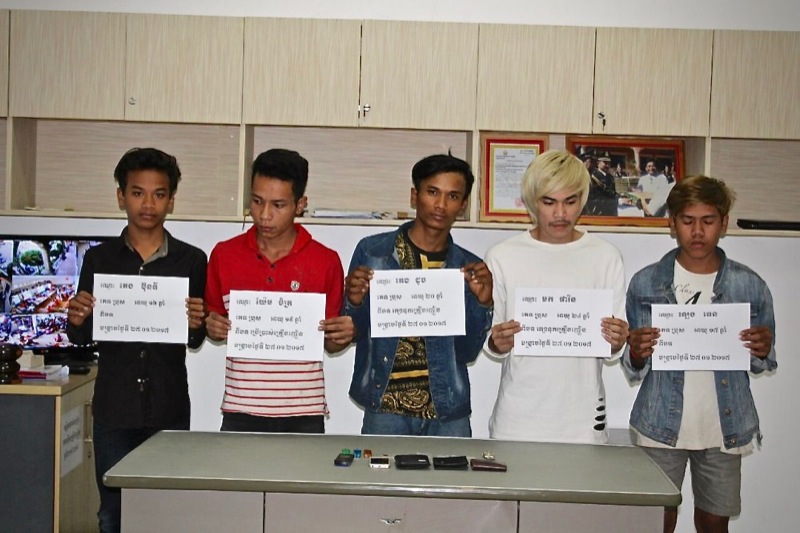In the first month of a six-month anti-drug crackdown, authorities have arrested nearly a quarter of the total number of people who were arrested for drug-related offenses in all of last year, according to government figures.
Last month, 2,428 people were arrested for drug-related offenses, with more than half— 1,243—arrested for using drugs, according to government data.

In the entirety of last year, police arrested about 9,800 suspects in drug cases, about a third of whom were suspected drug users.
On January 1, the government launched a multipronged campaign to combat drug trafficking and expand rehabilitation programs in an effort to quell what officials said was a growing national narcotics problem.
When the government first announced its campaign in December, it cited a nearly 30 percent rise in the number of identified drug addicts in Cambodia from 2015 to last year.
In nearly 1,000 cases last month, police arrested 1,181 suspected traffickers, three people involved in a drugs processing case and one person growing illicit drugs.
Meas Vyrith, secretary-general of the National Authority for Combating Drugs, said on Wednesday that arrested drug dealers were being sent to prison, while users went to hospitals, rehabilitation centers or temporary treatment centers.
When the government announced plans for new rehabilitation centers in December, Mr. Vyrith said that people who use drugs would not be sent to prison on account of their addictions.
“We never punish the drug user,” he said at the time. “We consider the drug user to be the victim.”
The number of drug arrests this year are on track to surpass last year’s total arrests by May, and more users are being sent to compulsory, government-run rehabilitation centers.
“Most of those arrested are held in pre-trial detention, rehab in detention facilities and prisons,” said Sou Sochenda, a manager at Khana, an NGO that supports voluntary drug treatment programs, in an email on Wednesday.
“The centers are already overcrowded,” she added.
While officials say rehab centers can handle the load, drug treatment experts say they lack the expertise or resources to effectively care for users.
Phnom Penh City Hall spokesman Met Measpheakdey said that 656 people arrested for using drugs were sent to the Mondul Orkhas Khnum center last month, where about 1,200 people are currently receiving detoxification treatment.
“We have offered them detox treatment at the center, including care for their mental and physical health,” he said, adding that the center also offers opportunities to exercise and play sports.
Asked about the potential for overcrowding in light of the growing number of arrests this year, Mr. Measpheakdey said there was a concern, but the municipality would continue to resolve any issues.
At a Social Affairs Ministry-run rehab center in Phnom Penh’s Prek Pnov district, director Veth Valda said about 80 people, as of the middle of last month, were receiving detoxification and rehab treatment, mental health counseling and life skills training.
“Currently, we don’t have a vocational training program because we do not have enough resources,” he said. “We already have a plan, but we are lacking resources as well as funding and staff.”
The lack of training and assistance with job placements was only one of the many deficiencies of government rehab centers, said David Harding, an independent consultant who has worked on drug abuse prevention programs in Cambodia for more than a decade.
“They are not run by any form of science-based treatment or rehabilitative process,” Mr. Harding said. “They rely completely on sweating out drugs [and] exercise regimes.”
“If they have a large influx of people in their centers, they’re simply not going to be able to do anything beyond detain them.”




